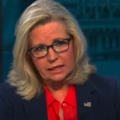In a stunning turn of events, the Teamsters, one of the most powerful labor unions in America, has decided not to endorse Kamala Harris for the 2024 presidential election. This marks the first time in nearly three decades that the Teamsters have withheld their endorsement from a Democratic candidate, signaling deep discontent within their ranks. This decision sends a clear message: Kamala Harris is struggling to connect with the very working-class voters her party relies on.
Harris, now the first Democratic nominee in 28 years to lose the backing of the Teamsters, is facing a significant challenge. In a recent internal poll conducted by the union, 58% of Teamsters members voiced their support for Donald Trump, while only 31% backed Harris. This staggering swing towards Trump is a devastating blow to Harris’s campaign, especially in key industrial swing states like Pennsylvania, Michigan, and Wisconsin, where unions carry significant weight.
This refusal to endorse Harris is not just about the candidates. It reflects a broader shift within the labor movement and points to a growing disconnect between the Democratic Party and the working class.
Why Did the Teamsters Refuse to Endorse Harris?
The decision to withhold an endorsement from either candidate speaks volumes. In a statement, the Teamsters said they were “left with few commitments on top Teamsters issues from either candidate” and found no definitive support among their members for either party’s nominee. This lack of strong support for Harris among union members is a red flag for her campaign.
As union members continue to feel the impact of inflation, stagnant wages, and rising costs of living, their frustrations are becoming increasingly apparent. Under the Biden-Harris administration, inflation has reached historic levels, and the working class is bearing the brunt of it. Union members, who are already struggling to make ends meet, are now blaming the Democratic Party for their financial woes.
In previous elections, unions like the Teamsters were instrumental in helping Democratic candidates win key battleground states. But this time around, things are different. The union’s internal polling shows that a majority of its members are now backing Trump—a candidate who, despite his controversial history with labor, has managed to position himself as the champion of the working class.
Inflation: The Silent Killer of Harris’s Campaign
Inflation is arguably the most significant factor driving the Teamsters’ refusal to endorse Kamala Harris. Over the past few years, the cost of living has skyrocketed, and union members are feeling the pinch. From groceries to gas, everything is more expensive, and wages have not kept pace.
For union workers, inflation is personal. It affects their ability to provide for their families and plan for the future. While Harris and her campaign have tried to address economic issues, many union members feel that her solutions fall short of what is needed. In contrast, Donald Trump, who has promised to bring jobs back to America and reduce costs, is resonating with these voters. They are living the reality of higher prices and stagnant wages, and they are holding Harris and the Democrats responsible.
A Cultural Disconnect Between Harris and the Working Class
But inflation is not the only reason the Teamsters are turning away from Harris. There is a growing cultural disconnect between the Democratic Party and the working class, and Harris’s campaign is a perfect example of this divide.
For years, the Democratic Party has shifted its focus away from the concerns of blue-collar workers and towards issues that resonate more with college-educated, urban voters. While these issues may be important to some, they do little to address the day-to-day struggles of working-class Americans.
Many union members feel that the Democratic Party, and Kamala Harris in particular, no longer represent their values. Cultural issues, such as immigration, woke politics, and environmental regulations, have alienated many in the working class who feel left behind by the party they once supported.
This cultural disconnect is one of the main reasons why Harris is failing to gain traction with union voters. In contrast, Trump has successfully positioned himself as the anti-establishment candidate, someone who fights for the forgotten men and women of America.
The Teamsters’ Poll: A Clear Shift Towards Trump
The internal poll released by the Teamsters shows a significant shift in support towards Donald Trump. According to the poll, 58% of Teamsters members support Trump, while only 31% back Harris. This is a dramatic swing from previous elections, where the majority of union members voted for Democratic candidates.
So, why are so many union members backing Trump, a candidate who has been criticized for his ties to billionaires and his anti-labor policies? The answer lies in the messaging. Trump has managed to position himself as a champion of the working class, despite his controversial labor record. He has promised to bring back jobs, cut taxes, and reduce regulations—issues that resonate with union members who feel left behind by the current administration.
In contrast, Harris has struggled to connect with these voters. Her policies on immigration, the environment, and social justice, while popular with the Democratic base, do not resonate with union members who are more concerned with jobs and wages.
What This Means for 2024
The Teamsters’ decision not to endorse Harris is a huge setback for her campaign. Without the support of the Teamsters, Harris will struggle to mobilize working-class voters in key swing states. The Teamsters’ political operation is one of the most powerful in the country, and their refusal to back Harris could make all the difference in states like Pennsylvania, Michigan, and Wisconsin.
These states, which are home to large union populations, will be critical in determining the outcome of the 2024 election. If Harris cannot win over these voters, her chances of winning the White House are slim.
Final Thoughts: The Future of the Labor Movement
The Teamsters’ refusal to endorse Kamala Harris is about more than just one candidate. It reflects a broader shift within the labor movement and highlights the growing disconnect between the Democratic Party and the working class.
Union leadership has failed to properly engage and educate its members on the issues that matter most. Rather than focusing on political education, union leaders have avoided controversial topics, leaving members to form their own opinions based on their experiences—experiences that have been shaped by inflation, job losses, and a perceived lack of support from the Democrats.
The labor movement needs to rethink its approach to political advocacy. If unions want to remain relevant, they must focus on the economic issues that matter most to their members. Until the Democratic Party starts addressing the real concerns of the working class, we can expect to see more unions like the Teamsters drift away from the party.
Kamala Harris now faces an uphill battle. Without the backing of the Teamsters, her campaign is in serious jeopardy. And as more union members turn to Trump, the future of the Democratic Party’s relationship with labor hangs in the balance.
We’d love to hear your thoughts! Please comment below.
Jimmy
Having trouble? If your comment doesn’t post, submit another comment right after it that says: Jimmy, please approve my comment that didn’t post.














If ya got smart then why not endorse Trump?
I think they SHOULD Endorse TRUMP, mainly because he is “one of them” A WORKER…A BUILDER, and EMPLOYER of the working man. What PHYSICAL JOB has COMMUNIST harris ever done?
Amen Cliff! Thanks for the comment
Seventy years ago the democrat party was considered to be the workingman’s party. That is no longer true. The policies of today’s democrat party are detrimental to the needs and liberties of middle income American citizens. The democrat party is all for the party. Their objective is to fundamentally change America into a marxist state.